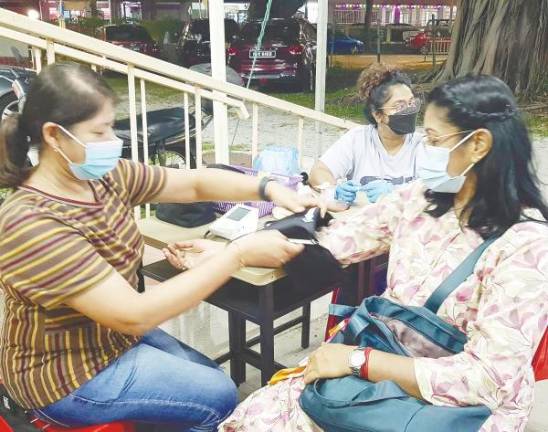AS an obstetrics and gynaecology specialist, I always have conversations with pregnant mothers, and my patients are fairly open with sharing their physical, mental and emotional journeys throughout their pregnancy.
Regardless of their different cultural and religious backgrounds, the one thing all pregnant mothers have in common is their innate desire to do everything in their power to keep their unborn baby safe.
The first thing I would recommend, especially for those expecting their first child, is that they talk to their doctors about maternal immunisation that will provide their unborn infant protection from
life-threatening infectious diseases, such as pertussis (whooping cough).
Pertussis is a highly contagious disease that can be particularly harmful to newborn infants. Few years ago I had a patient whose three-week-old baby became infected with pertussis. The mother was in her early 40s, and with a challenged obstetric history. It was a precious pregnancy as it was her first child after six failed pregnancies. However, all went well until the baby’s birth.
Three weeks later, my patient was visited by a friend and her two children. The friend neglected to mention that both her children had recently been discharged from hospital after suffering from pertussis.
Four days later, my patient’s baby developed a bad cold, became listless, started coughing and turned blue. The baby was rushed to hospital, where blood tests revealed that the baby had pertussis. The baby was treated with antibiotics and was put on a ventilator for few days.
My patient was glad her child recovered, and she is now a healthy four-year-old girl. Nevertheless, it was a touch-and-go situation. She told me how distressed and upset she had been that her friend did not think about the sensitivities of the situation that led to her baby contracting the respiratory disease.
My patient, who had not taken the Tdap (tetanus-diphtheria-pertussis) vaccine while she was pregnant, also shared with me in retrospect that she wished she had taken the Tdap jab during her pregnancy as it would have prevented the disease, and the trauma she had to undergo.
The Covid-19 pandemic has disrupted the routine of children’s vaccinations worldwide, as shown by data published recently by the World Health Organisation and United Nations Children’s Fund.
Approximately 23 million children missed out on basic vaccines in 2020. This marks the highest number in over a decade, and 3.7 million more than in 2019, leaving millions of children at risk of vaccine preventable diseases such as tetanus, diphtheria and pertussis. Given this scenario, it is important for pregnant mothers to be alert, and not neglect their vaccinations during pregnancy.
The Tdap vaccine will provide immunity for pregnant mothers and their unborn infants against tetanus, diphtheria and pertussis.
The Malaysian Society of Infectious Diseases and Chemotherapy recommends that all mothers receive a dose of the Tdap vaccine between 27 and 36 weeks of each pregnancy, as it reduces the risk of being infected with pertussis in unborn babies by over 90%, and causing death in babies three months and below, by 95%. The Centres for Disease Control and Protection reinforces that the Tdap vaccine is recommended during every pregnancy, regardless of how long since the last vaccine.
Dr Kiren Sidhu
Consultant Obstetrician and Gynaecologist
Pantai Hospital
Kuala Lumpur












